
The article from Mail & Guardian's Green Guardian delves into the multifaceted impacts of mining for electric vehicle batteries in Zambia, focusing on forced labour, human trafficking, and environmental crimes. It highlights how the surge in demand for minerals like cobalt and lithium has led to exploitative labour practices, including forced labor and human trafficking in Zambia's mining sector. These practices often affect vulnerable populations, including children, who are coerced into hazardous work conditions. Environmental degradation is another critical issue, with mining operations causing deforestation, soil erosion, and water contamination, threatening local ecosystems and community health. The article underscores the need for stringent regulations, enforcement of labor laws, and sustainable mining practices to mitigate these adverse effects. It calls for greater transparency and accountability in the supply chain, urging companies and governments to prioritize ethical sourcing, protect human rights, and minimize environmental harm in the pursuit of renewable energy solutions.

In September 2021, Milingo Lungu, the state-appointed provisional liquidator of Zambia's Konkola Copper Mines (KCM), was arrested and charged with money laundering. Lungu, who had been overseeing the operations of KCM since its liquidation in 2019, faced allegations of laundering more than $2 million. The charges were brought forward by Zambia's Drug Enforcement Commission, which accused Lungu of transferring the funds to his personal accounts. Lungu, however, dismissed the charges as baseless and politically motivated. The case has drawn significant attention due to its implications for Zambia's mining sector and the ongoing legal battles over KCM's ownership. The outcome of this case remains closely watched by financial professionals and stakeholders in the mining industry.
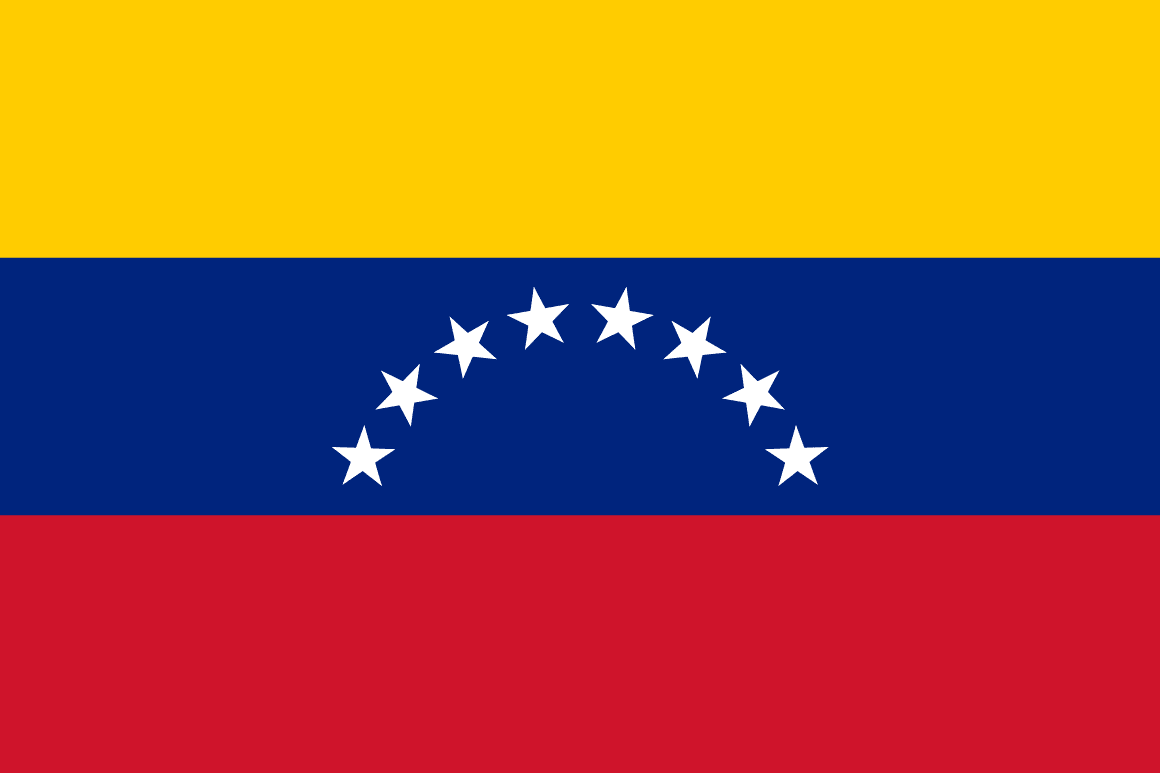

Research from NGO Verité found that up to 91% of Venezuela's and 87% of Colombia's gold exports are illegally produced, often controlled by organised crime groups backed by large-scale investments. Some of the world's most active organised crime groups and non-state armed groups are reportedly directly involved in the production and sale of such illegal gold, including Mexico's Sinaloa cartel and Italy's 'Ndrangheta mafia, as well as Brazilian, Russian, and Chinese syndicates._ Illegally produced gold from Latin America is exported to refineries (with the help of corrupt officials), melted down and blended with legally produced and scrap gold, or mixed to make alloys, then exported to global markets. Canada and the US are the biggest importers of Latin American gold & indeed, the latter's gold imports from Latin America exceed the volume of gold that Latin America claims to export. Whilst Switzerland is responsible for refining around 70% of globally-produced gold, some of the county's refineries have stopped purchasing gold from Latin American suppliers linked to illegal gold mining and human rights abuses, leaving a gap in the market which US refineries have rushed to fill, purchasing this surplus gold in Switzerland's place and introducing it to global markets. Indeed, Verité found that 90% of the Fortune 500 companies that filed conflict mineral disclosures last year (from across telecoms, IT, car manufacturers, and machinery producers) had purchased gold from refineries linked to illegally mined gold from Latin America. In 2022, over 320 illegal gold mines were counted in the nine states that make up Brazil's Legal Amazon. Major drug trafficking factions, including the Primeiro Comando da Capital, have infiltrated mining operations in Indigenous territories, running protection rackets, extorting taxes, controlling pits, and forging partnerships with gangs in neighbouring Venezuela to sell contraband minerals. Gold is also the top export of Bolivia, with the mining region transecting national parks and reserves.

In September 2021, the Environmental Investigation Agency (EIA) uncovered a significant illegal logging and laundering scheme involving mukula timber in Zambia. The investigation revealed that over 10,000 mukula trees were illegally felled, exploiting land allocated to people with disabilities. The Zambia Agency For Persons With Disabilities (ZAPD), the Ministry of Community and Social Services, the Ministry of Tourism and Arts, and the office of the vice president were implicated. The scheme began in 2017 when land was allocated under the guise of empowering disabled individuals through farming. However, the land was used to harvest and launder mukula timber, with cutting permits repeatedly misused. The logs were stockpiled and transported by the Zambia National Service (ZNS) and a well-known logistics company. The profits did not benefit the intended disabled individuals but rather a small, well-connected elite. The investigation highlighted a revenue loss of approximately US$214 million due to unaccounted timber exports to China. The election of President Hakainde Hichilema brings hope for addressing this systemic corruption.

According to an InSight crime article, illegal mining is on the rise in southern Venezuela, even as Brazil tightens its grip on the region. This increase in illegal mining activities has led to significant environmental damage, human rights abuses, and security threats for both Venezuela and the region. The situation is further complicated by the involvement of criminal groups, including gangs, Colombian guerrilla groups, and paramilitary groups, who are competing for control of the country's valuable mineral resources, such as bauxite, coltan, diamonds, and gold. The Venezuelan government's inability to control these illegal activities has led to irreversible damage to the environment and a humanitarian crisis among the indigenous communities affected by the mining. The situation is so dire that some are calling for the interim government to take immediate action to halt illegal mining operations, protect indigenous and local communities, and implement public health policies to mitigate the spread of diseases caused by the mining.

An InSight Crime Article reports that in Venezuela, criminal groups and state forces are colluding in widespread cattle theft, significantly linked to drug trafficking and characterised by corruption and bribery. Criminal organisations, alongside corrupt officials and military personnel, orchestrate cattle theft from ranchers, using bribery and coercion to facilitate these operations. Stolen cattle are often sold to fund drug trafficking activities, with corrupt authorities turning a blind eye or actively participating for financial gain. This illicit network exploits the country's economic instability and legal system weaknesses, creating a lucrative cycle of crime that exacerbates violence and lawlessness in rural areas. The involvement of state forces adds a layer of complexity, undermining trust in government institutions and law enforcement. Addressing this issue requires dismantling the corrupt alliances between criminals and officials, strengthening legal frameworks, and ensuring accountability to combat the intertwined issues of bribery, corruption, and drug-related crime in Venezuela's cattle industry.

In Venezuela, illegal mining, particularly of gold, has led to severe environmental and social consequences, including the country's highest deforestation rates within the Amazon basin. Between 2016 and 2020, approximately 140,000 hectares of primary forest were destroyed, driven by unregulated mining activities that also resulted in significant mercury contamination and habitat destruction. This crisis is exacerbated by the involvement of armed groups and guerrillas who control the mining operations in the Amazonas and Bolivar states, often with the tacit approval or direct involvement of corrupt elements within the Venezuelan state. These groups commit widespread human rights abuses and pose significant threats to Indigenous communities. The Venezuelan government, under Nicolis Maduro, has been implicated in profiting from the illegal gold trade, which has become a crucial financial resource amidst the country's economic crisis and international sanctions. Efforts by international actors and neighboring countries to curb these activities face significant challenges due to the deep integration of illegal mining within the political and economic fabric of Venezuela. The situation is further complicated by the global nature of the gold supply chain, which often sees illegally mined gold laundered through multiple countries before reaching major markets.

In the Venezuelan Amazon, particularly within the states of Bolivar and Amazonas, deforestation has surged alarmingly due to illegal mining, expanded agriculture, and wildfires. Reports from 2022 highlight that over 140,000 hectares of primary forest were lost between 2016 and 2020, driven by these activities. The situation is exacerbated by the presence of Colombian guerrillas, such as the ELN, who, with alleged support from the Venezuelan government, exploit these regions for mining and agriculture, severely impacting protected areas like Caura, Canaima, and Yapacana national parks. The illegal operations include the construction of runways for drug trafficking and mineral smuggling, contributing significantly to the region's deforestation. This criminal activity not only threatens biodiversity but also undermines the efforts of local communities engaged in sustainable agroforestry, further destabilizing the region.

An examination of Venezuela's gold trade has uncovered extensive risks related to human rights abuses, environmental destruction, and the entanglement with criminal economies. The OECD highlights that since Venezuela's mining industry was nationalised in 2011, criminal activities have increasingly infiltrated the sector. Gold's high value, portability and difficulty in tracing makes it a perfect medium for illicit finance, meaning that the mineral is a crucial target for organised crime groups throughout the country. This explains a rapid increase in illegal mining that has caused widespread deforestation and environmental damage in protected areas, including the Venezuelan Amazon. A report by the Pulitzer centre explains this, also underlining the extent to which organised crime groups, including mafias and guerillas, control these illegal operations, notably creating clandestine airstrips to export their loot to foreign countries. The environmental impact of these criminal activities is immense. Gold mining is causing hydraulic ground erosion, deforestation, and the inappropriate use of mercury, according to Mongabay. Mercury contamination has been found in the blood, hair, and tissues of local communities, causing serious health issues.

According to The Star, approximately 16,000 tonnes of rare earth oxide were extracted illegally from five Malaysian states, Sik in Kedah, Lipis in Pahang, Pengkalan Hulu and Kuala Kangsar in Perak, and privately owned lands in Meranti and Jelebu in Negri Sembilan. These activities were conducted in forest reserves and private properties without proper authorisation. In comparison, 7,000 tonnes of rare earth carbonate, yielding 3,000 tonnes of rare earth oxide, was mined legally from a pilot project in Kenering, Perak. In terms of exports, the report found that Malaysia exported a total of 19,081 tonnes of rare earth oxide, valued at RM 975 million. With only 3,000 tonnes coming from the legal project in Kenering, the remaining 16,000 tonnes were identified as originating from illegal mining operations. In response, Nik Nazmi Nik Ahmad, the Minister of Natural Resources and Environmental Sustainability, acknowledged the illegal mining issue and emphasised the need for a strategic plan to develop the rare earth industry in Malaysia.
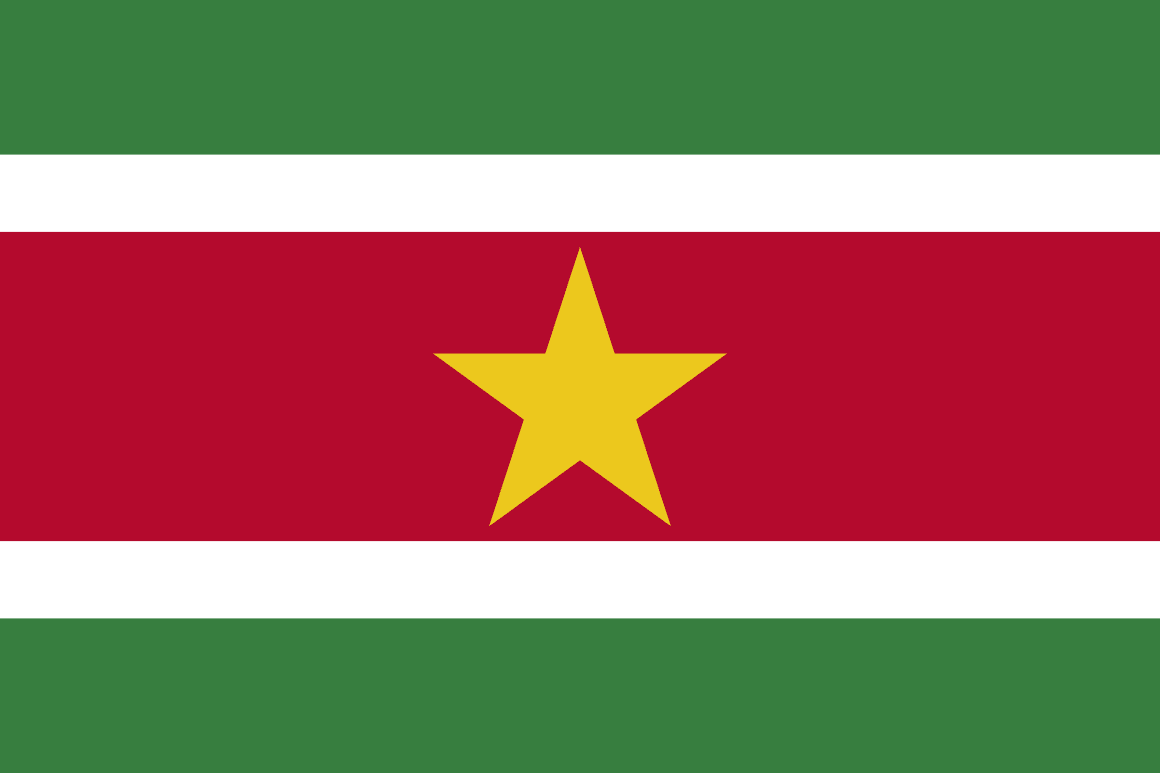
According to the Guardian, Suriname, the most forested country in the world, is facing significant threats to its forests due to increased_ illegal gold mining and logging. This expansion has also violated the rights of Indigenous and tribal peoples by infringing on their ancestral lands. The Saamaka people, among other Indigenous groups, have voiced strong opposition to these illegal activities, that severely disrupt their livelihoods. Despite a 2007 ruling by the Inter-American Commission on Human Rights (IACHR) mandating a stop to these harmful economic activities and to respect the territorial boundaries of the Saamaka, the judgement has been largely ignored by local companies and other actors in the region. Instead, a fourfold increase in deforestation on Saamaka lands has been observed. In addition, illegal gold mining operations in the region are often characterised by labour rights abuses, which have increased in the nation as a whole. Health risks due to exposure to toxic chemicals such mercury further devastate communities.

The article from National Geographic discusses the issue of jaguar poaching in Suriname, which is linked to Chinese immigrants in the country. These immigrants have established networks to hunt jaguars, process their bodies, and smuggle the products to China. The jaguars are "killed to order," turned into jewelry and a medicinal product called "glue," and smuggled out of Suriname in carry-on luggage on commercial airlines. This illegal trade in jaguar products has developed in the context of heavy Chinese investment in Suriname, which has brought in thousands of people who work as loggers, miners, and shop owners. The influx of Chinese citizens has likely expanded the domestic market for jaguar parts in Suriname. This case is emblematic of a much larger, well-organised network of international jaguar trafficking.

An article by ANI News details the extent of the illegal timber business in Suriname, largely driven by Chinese companies, which own over half of the logging concessions in the country. After illegal exploitation, logged timber is sold online through hard-to-track companies. As a consequence, Suriname loses approximately 100 million euros annually due to illegal logging, with the money flowing to criminal cartels. Suriname produces nearly 1.5 million cubic metres of wood yearly, with China and India being the primary buyers. Despite efforts to monitor illegal activities using technology, the vast area of rainforest makes control challenging. Corruption is also widespread, with officials and concession holders implicated in illegal activities. ANI News explains that the significant discovery of containers filled with illegal timber indicates potential involvement by customs officials.

According to the Horn Observer, the increasing artisanal gold mining in the Golis mountains of northeastern Somalia has become a significant target for taxation by militant groups Al Shabaab and Islamic State. The village of Milxo is notably at the centre of this activity. Gold mining in Milxo involves two main practices, surface mining and deep cast mining. Both lack proper permits and safety measures, leading to frequent accidents. The gold mining operations produce an estimated 300 kg of gold annually, worth about $1.5 million, which is mostly smuggled to the UAE to avoid taxes. Al Shabaab has aggressively campaigned to control this lucrative trade, imposing a taxation scheme on miners and buyers, despite the presence of Puntland and international counterterrorism forces. The group's ability to leverage the rough terrain, financial constraints of local governments, and unregulated mining activities enhances their operational capabilities. This poses a threat to international stability and maritime traffic. The ongoing conflict and lack of effective governance in the area have overall allowed Al Shabaab to exploit the gold trade, funding their insurgency.
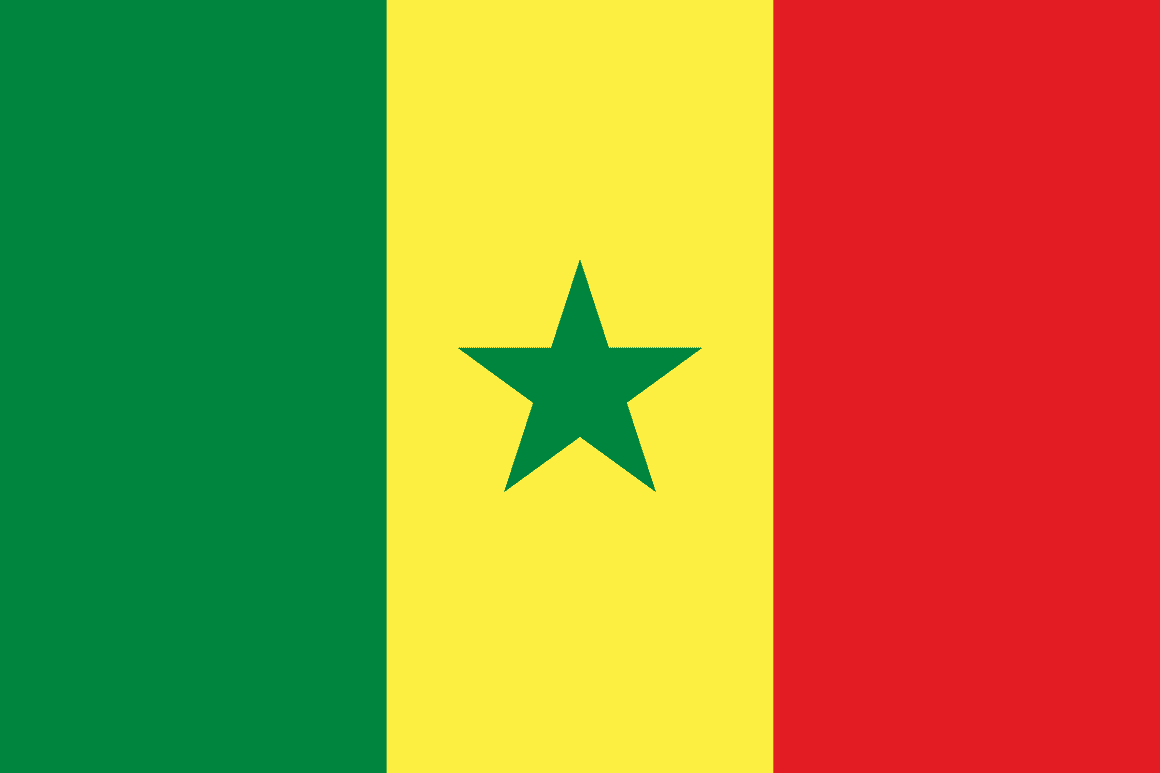
The article reports on a criminal investigation by Swiss authorities into alleged timber pillaging in Senegal and The Gambia. The investigation targets a Swiss timber company accused of illegally sourcing timber from these West African countries, where deforestation and environmental degradation are significant concerns. Local communities and environmental groups accuse the company of exploiting loopholes in regulations, conducting illegal logging, and contributing to habitat destruction and loss of biodiversity. Swiss authorities are probing potential violations of Swiss laws on economic crime and environmental protection. The case underscores broader issues of corporate responsibility, environmental stewardship, and the exploitation of natural resources in developing countries. It highlights the need for international cooperation and stricter enforcement of laws to combat illegal logging and protect vulnerable ecosystems.

A report by Enact Africa details how illegal mining in Senegal, particularly in the south-eastern Kedougou region, has caused immense tax revenue losses and severe environmental degradation. Illegal miners, predominantly Chinese groups, entered Kedougou in 2017, where they initially operated in buffer zones by paying legitimate local Ghanaian companies for the use of their licences to mine illegally. Following this illegal activity, the region has faced severe water pollution. The Niokolo-Koba National Park, a protected zone, has also been infiltrated by illegal miners, damaging the ecosystem. Bribery and corruption fuel in large part this illegal mining in the region. . Indeed, bribes ranging from CFA 12 million to 16 million (US$20,491 to US$27,321) per week are paid to local officials and park authorities to allow mining operations to continue. Bribes also extend to local leaders, who are paid to remain silent about the environmental damage and community disruptions. Overall, it is estimated that the Senegalese government loses approximately CFA 4 billion (US$6.83 million) annually due to illegal mining activities. The corruption and illegal mining practices also harm local economies, exacerbating poverty and limiting legitimate economic development.

According to Mongabay, intensive illegal logging, driven by growing consumer demand in China, has decimated Pterocarpus erinaceus (rosewood) trees in Senegal's southern region of the Casamance, which borders the Gambia.. Despite the introduction of an export ban and increased border patrols, trafficking has worsened, with the Gambia becoming a hub for smuggling rosewood to China from the Casamance region in Senegal. It has been reported that approximately 1.6 million rosewood trees were illegally logged from the Casamance and exported from the Gambia to China between June 2012 and April 2020. The inefficacy of bans and patrols can in part be attributed to the high levels of unemployment and poverty in the region that pushes locals to participate in the illegal trade. In addition, corruption exists on both sides of the Senegal-Gambia border, further facilitating trafficking and the illegal trade._ Deforestation from this illegal trade has disrupted local ecosystems, influenced rainfall, and overall decreased agricultural productivity. This affects local communities that rely on the forest for livelihoods.
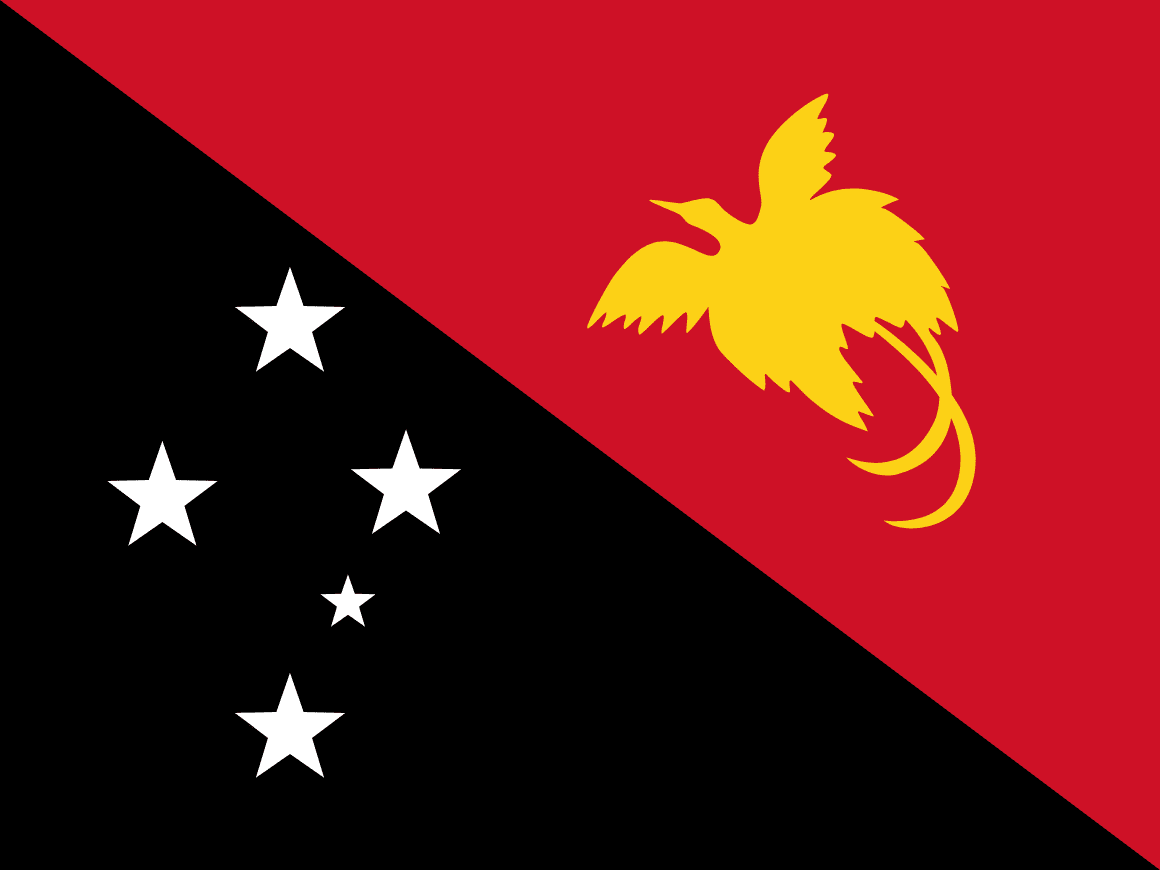
The biggest fraud investigation in Papua New Guinea (PNG) led to the uncovering of the misappropriation of approximately US$75 million from a trust fund linked to the Ok Tedi mine, a controversial mine accused of causing severe environmental damage to its surrounding community over the last few decades. The mine led to one of the worst environmental disasters, with around two billion tons of untreated mining waste being discharged from the mine. The fraud investigation discovered a money laundering and misappropriation scheme, finding that funds intended to go to the PNG's Western Province were instead improperly paid to the OK Tedi Fly River Development Foundation and their Australian law firm. A prominent Australian lawyer was arrested on multiple charges relating to the misappropriation of the funds.

An undercover investigation by Global Witness exposed bribery for palm oil in Papua New Guinea. The investigation involved secretly filming a palm oil executive who admitted to paying bribes to public officials in exchange for logging permits and access to land. The executive was from East New Britain Resources Group (ENB), one of the largest logging and palm oil firms operating in Papua New Guinea. The bribes to a government minister typically ranged from 50,000 to 100,000 Papua New Guinean kina ($14,000-28,000). The CEO of ENB was also filmed describing a tax evasion scheme. Another palm oil firm, Tobar Investment, was caught discussing payments to a special police unit to suppress villagers opposed to their plantations. The palm oil from ENB has been used by major consumer goods companies, which severed ties with ENB after the investigation. This case highlights the role of political corruption in deforestation and the exploitation of Papua New Guinea's rich biodiversity.

A Global Witness investigation has revealed that a rubber plantation on Manus Island, Papua New Guinea (PNG), controlled by Malaysian-owned Maxland Limited, is likely a front for illegal logging. As a result, the logging operations carried out by this company have had devastating effects on the island's biodiversity. Maxland's permits for timber exploitation on the island are allegedly unlawfully obtained, breaching numerous PNG Forestry Act sections. This has created allegations of bribery surrounding Maxland's rubber project. In addition, Maxland had promised, Indigenous locals economic benefits from the plantation, such as_ new infrastructure, poverty alleviation, and employment, which failed to materialise. Evidence suggests that the company instead has exploited the valuable local tropical hardwoods, regardless of the environmental destruction this may cause. The project has sparked conflicts amongst the local community due to its subsequent environmental degradation and its creation of social issues, which have disproportionately impacted women and lead to violence and protest.

Sources increasingly suggest that logging concessions are used by corrupt politicians as a tool for building personal wealth. The Governor of the country's Oro province has been a vocal critic of the logging cartels operating in the region over the past decade, describing all such logging ventures as unlawful, as they don't have informed consent of landowners (and, indeed, a report by Chatham House has deemed at least 70% of logging in the country illegal). While loggers may seek specific tree species with high timber value (for example, Papua New Guinea rosewood (Pterocarpus indicus)), much of this logging activity nevertheless involves the indiscriminate felling of trees, which are subsequently taken to log yards and sorted through, with the high value timber selected at this stage. According to a 2017 National Risk Assessment by the Bank of Papua New Guinea, illegal logging in the country poses a significant threat to money laundering. The assessment stated that there are strong indicators of large-scale corruption and illegal logging in the forestry sector in the country which result in high levels of proceeds of crime. It is widely accepted that the problem is widespread and that the lost revenue is extensive. A 2021 report noted that according to online company filings in Papua New Guinea, the country's commercial banks have provided at least K300 million (USD 79 million) in available credit to the top five log exporting companies since 2000. However, nearly two-thirds of the registered financing transactions are for an unspecified amount, and the top five exporters only account for 52% of total log exports. As such, the total credit made available to the entire logging industry could reasonably be more than three times this amount.

A report by Global Witness has revealed the extent of the human rights abuses linked to the palm oil industry in Papua New Guinea (PNG). A range of severe violations against local communities and workers are exposed in the report, implicating three major PNG oil producers, East New Britain Resources Group (ENB), Rimbunan Hijau Group (RH), and Bewani Oil Palm Plantations Ltd (Bewani). These companies are accused of using violence and coercion to eliminate any opposition to the extension of their production. Villagers resisting land acquisition and plantation activities are coerced into compliance through threats and physical violence. As a result, large-scale land grabs for palm oil plantations have resulted in the displacement of hundreds of families in PNG. Exploiting corrupt individuals within the national police force the Royal Papua New Guinea Constabulary, the companies intimidate villagers. Reported incidents include late-night raids where individuals were beaten and detained at gunpoint. In addition, the companies' employees often face exploitative practices. ENB has, for example, been reported to use child labour on their plantations, with children as young as ten reportedly working in hazardous conditions. Workers also often lack proper safety equipment, and safety and health incidents are often unreported or inadequately addressed._ Moreover, there are concerns over corrupt business practices across these companies, with ENB executives having admitted to bribing government officials to secure logging permits and land access.


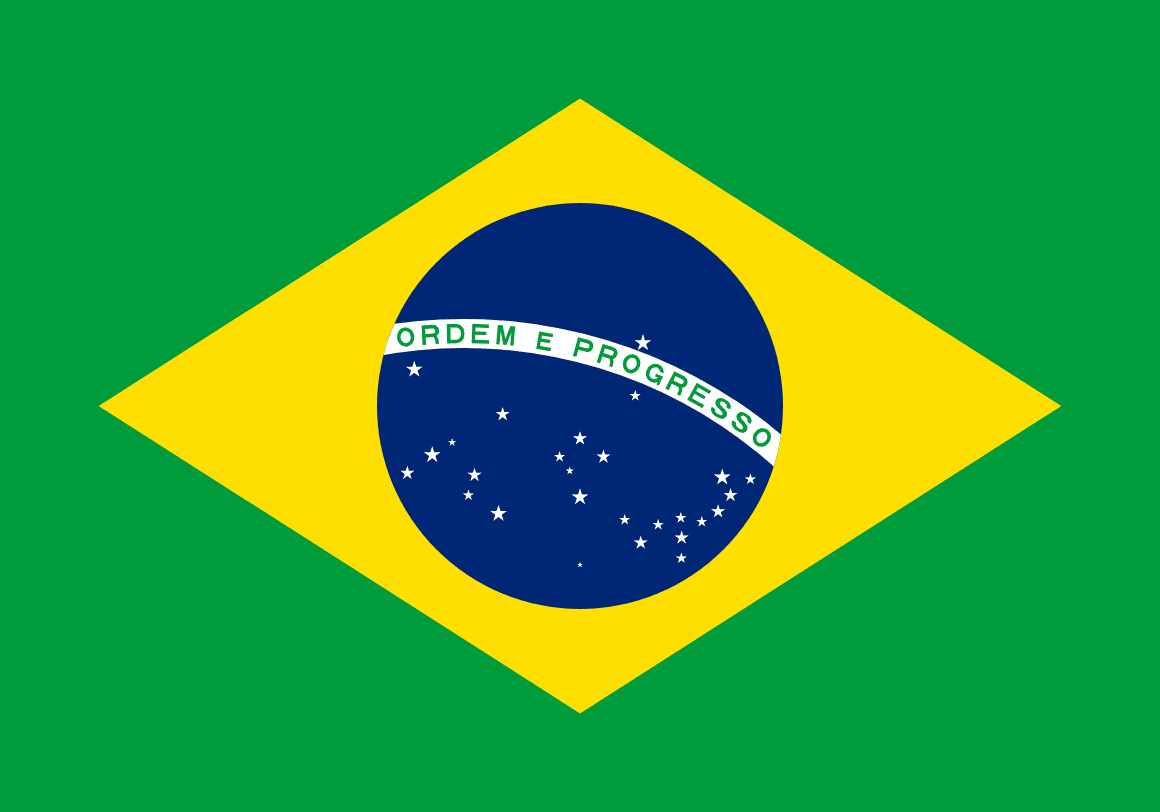
A joint investigation by InSight Crime and the Igarapé Institute has revealed that illegal timber harvesting is rampant in the forests of the Amazon's tri-border regions, covering Peru, Brazil and Colombia. The investigation highlights how multinational networks target valuable hardwood species, falsifying logging and transport permits to legitimise the timber and export it. In order to further conceal the illicit activity, the timber may also be transported to places such as Leticia, Colombia, where traffickers are able to avoid certain taxes and controls. The scale of this illegal timber trafficking is extensive, with a 2012 World Bank report finding that about 80% of Peru's timber is illegally extracted. Another aspect of this illegal trade is the exploitation of Indigenous community members by timber bosses, or "patrones,". The latter will promise jobs and earnings that almost always fail to materialise. For example, the Matses Indigenous community entered into an agreement with timber patron Teodulfo Palomino Ludeña, who falsified documents and harvested excess timber, leading to fines and permits for the community. Timber brokers are also involved in laundering illegal timber, using their companies to legitimise illegal wood from the Amazon.

The article titled "Cocoa and gunshots: The struggle to save a threatened forest in Nigeria" published on Mongabay, discusses the struggle to save Nigeria's Omo Forest Reserve from deforestation caused primarily by cocoa farming. The reserve, which provides habitat for animals such as forest elephants and drinking water for Lagos, has lost more than 7% of its tree cover over the past two decades. Thousands of small farmers, seeking fertile soil and a respite from poverty, have illegally settled in the reserve. The government is hesitant to evict them as it would disrupt their livelihoods and require significant funding. Instead, the focus is on preventing more farmers from invading Omo. This is the goal of rangers who patrol Omo's remaining forests looking for footprints and listening for chainsaws and gunshots. Despite their efforts, the reserve is too big for the relatively small team to effectively monitor in its entirety.

In a striking move against environmental conservation, Peru enacted Law 31973, which has significantly altered its Forest and Wildlife law, leading to increased deforestation and legal controversies. Passed hastily in December 2023, this law pardons all historical illegal deforestation for agriculture before January 2024 and dismantles future legal constraints, effectively opening up vast tracts of the Peruvian Amazon to unchecked agricultural expansion. This legislative change was influenced by powerful agricultural and business interests, notably the country's main private business federation, CONFIEP, which lobbied intensely for these amendments. The law's enactment has sparked widespread domestic and international criticism for its potential environmental and human rights impacts, particularly on indigenous communities. These communities, who have seen 30 of their environmental defenders killed between 2010 and 2023, are at increased risk as their ancestral lands are threatened by expanding agricultural activities. Critics argue that the law not only contravenes Peru's commitments under various international environmental agreements but also undermines the rights and protections for indigenous peoples. Resistance to the law is growing, with various civil society groups, indigenous organisations, and regional governments calling for its repeal. They argue that the law was passed without proper consultation and violates both human rights and environmental protection statutes. The regional government of San Martín has even filed a claim of unconstitutionality against the law. Internationally, the law has raised concerns about Peru's commitment to global forest conservation efforts, particularly in light of the upcoming European Union Deforestation Regulation set to take effect in December 2024.


The Environmental Crimes Financial Toolkit is developed by WWF and Themis, with support from the Climate Solutions Partnership (CSP). The CSP is a philanthropic collaboration between HSBC, WRI and WWF, with a global network of local partners, aiming at scaling up innovative nature-based solutions, and supporting the transition of the energy sector to renewables in Asia, by combining our resources, knowledge, and insight.